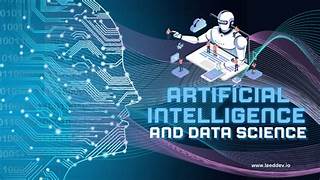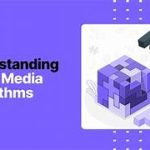Evaluating the Impact of Artificial Intelligence on Modern Science
Artificial intelligence (AI) has become one of the most transformative forces in modern science, offering unprecedented opportunities for innovation and advancement. From revolutionizing research processes to enabling breakthroughs in various scientific fields, AI’s impact on science is undeniable. By leveraging machine learning, deep learning, and other AI-driven technologies, scientists are now able to analyze complex data, simulate experiments, and make predictions with unprecedented accuracy and speed. This article will explore the ways in which AI has reshaped modern science, the challenges that come with its integration, and the future prospects of AI in scientific discovery.
AI in Scientific Research: Accelerating Discovery
In the past, scientific discovery was often a slow and laborious process. Researchers had to manually sift through large datasets, test hypotheses, and analyze results over extended periods of time. However, AI has drastically altered this landscape by automating and streamlining many aspects of scientific research. Machine learning algorithms, in particular, are now capable of analyzing vast amounts of data in ways that would be impossible for humans to accomplish in a reasonable timeframe.
- Data Analysis and Pattern Recognition
The sheer volume of data generated in modern scientific research is immense. Whether in genomics, physics, or climate science, the amount of data that scientists must process is constantly growing. AI’s ability to analyze large datasets quickly and efficiently has revolutionized how researchers extract meaningful insights from this data. By identifying patterns, trends, and correlations that would otherwise go unnoticed, AI has allowed scientists to make discoveries faster and more accurately.
For instance, in the field of genomics, AI is being used to decode genetic sequences and identify mutations associated with diseases. Traditional methods of analyzing genetic data would take years, but AI-powered tools can now perform this analysis in a fraction of the time. Similarly, AI algorithms are being used in drug discovery, where they analyze chemical compounds and predict their effects on the human body, greatly reducing the time and cost required to bring new drugs to market.
- Predictive Modeling and Simulations
AI’s capacity for predictive modeling is another key benefit in scientific research. By using historical data and sophisticated algorithms, AI can predict future outcomes and help scientists understand complex systems. In climate science, for example, AI models can simulate various climate scenarios based on different variables, providing valuable insights into how climate change will impact ecosystems, weather patterns, and human societies.
Similarly, in physics, AI-powered simulations are helping researchers to understand phenomena that are difficult to observe directly, such as subatomic particle behavior or black hole dynamics. AI-driven simulations can run thousands of experiments in a short period, offering valuable insights that would be impossible through traditional experimental methods alone.
AI in Healthcare: Revolutionizing Medicine and Diagnostics
AI’s impact on modern science is perhaps most evident in the field of healthcare, where it has already begun to transform the way diseases are diagnosed, treated, and prevented. Through the use of machine learning algorithms, AI is helping doctors make more accurate diagnoses, predict patient outcomes, and personalize treatments.
- Medical Imaging and Diagnostics
One of the most promising applications of AI in healthcare is in medical imaging. AI algorithms, particularly deep learning models, have proven to be highly effective in analyzing medical images such as X-rays, MRIs, and CT scans. These algorithms can detect abnormalities, such as tumors or fractures, with a level of accuracy that rivals or even surpasses that of trained radiologists.
For instance, AI systems have been used to detect early signs of cancer in mammograms, improving early detection rates and saving lives. AI has also been used to identify retinal diseases in eye scans and predict cardiovascular risks in heart imaging. By automating the analysis of medical images, AI not only improves diagnostic accuracy but also reduces the workload on healthcare professionals, allowing them to focus on patient care.
- Personalized Medicine and Drug Development
AI is also revolutionizing the development of personalized medicine, where treatments are tailored to an individual’s genetic makeup, lifestyle, and medical history. Machine learning algorithms can analyze patient data to predict how different treatments will affect specific individuals, helping doctors make more informed decisions about the most effective treatment options.
In drug development, AI has the potential to drastically reduce the time it takes to bring new medications to market. Traditional drug discovery methods are expensive and time-consuming, with many potential drugs failing in clinical trials. AI can analyze large datasets to identify promising drug candidates and predict their efficacy before human trials even begin. This has the potential to shorten the drug development timeline and bring life-saving medications to patients more quickly.
AI in Space Exploration: Expanding the Frontiers of Knowledge
Space exploration is another area where AI is making a profound impact. The complexity of space missions, combined with the vast distances and the need for autonomous systems, has made AI an essential tool in modern space exploration. AI is being used to analyze data from telescopes, guide spacecraft, and even assist in the search for extraterrestrial life.
- Data Analysis and Telescope Management
Astronomical data collection is one of the most data-intensive fields in science. Telescopes and space probes generate petabytes of data, and AI is playing a key role in processing and interpreting this data. Machine learning algorithms are used to identify objects in space, classify galaxies, and even detect exoplanets by analyzing light curves from distant stars.
AI is also used in the management of telescopes themselves. Autonomous systems powered by AI can monitor the sky, adjust telescope settings, and track celestial objects without human intervention. This allows scientists to maximize the efficiency of their observations and collect more data in less time.
- Autonomous Spacecraft and Mission Planning
AI is also vital in space mission planning and the operation of autonomous spacecraft. Space missions often take place in environments where human intervention is limited or impossible, such as on Mars or in deep space. AI-driven systems are used to navigate spacecraft, conduct experiments, and make real-time decisions based on sensor data.
For example, NASA’s Perseverance rover, which landed on Mars in 2021, uses AI to autonomously navigate the Martian surface, avoiding obstacles and selecting scientific targets for investigation. These AI systems are essential for ensuring that missions run smoothly without constant communication with Earth, which can be delayed by vast distances.
Challenges and Ethical Considerations in AI Integration
While the benefits of AI in modern science are undeniable, the integration of AI into scientific research also comes with several challenges and ethical considerations. One of the most pressing issues is the potential for AI to perpetuate biases in research. AI algorithms are trained on historical data, and if this data contains biases, the AI systems can reinforce these biases in their predictions and conclusions. For example, in healthcare, AI systems could inadvertently lead to discriminatory practices if they are trained on data that underrepresents certain demographic groups.
Another challenge is the need for transparency and accountability in AI decision-making. As AI systems become more complex, it becomes increasingly difficult to understand how they arrive at their conclusions. This lack of transparency can make it difficult to trust AI-driven results, especially in critical areas such as medicine or criminal justice.
Moreover, the widespread use of AI in scientific research raises questions about the role of human expertise. While AI can process and analyze vast amounts of data, it is still essential for scientists to provide context, interpret results, and guide the research process. Striking a balance between AI and human oversight is crucial to ensuring that scientific progress is both accurate and ethically responsible.
The Future of AI in Science
The potential for AI to continue reshaping science is immense. As AI technology advances, it is likely that its integration into scientific research will become even deeper and more pervasive. Future applications of AI in science may include even more advanced drug development tools, more accurate climate models, and enhanced capabilities for exploring the human brain. Additionally, AI could help scientists solve some of the most pressing global challenges, such as climate change, energy sustainability, and food security.
In the near future, we may also see AI-powered “AI scientists”—systems that autonomously generate hypotheses, design experiments, and conduct research. These AI systems could work alongside human researchers, accelerating the pace of scientific discovery and opening up new frontiers of knowledge.
Conclusion
Artificial intelligence has had a profound impact on modern science, offering scientists new tools to accelerate discovery, improve healthcare, explore space, and solve complex problems. From data analysis and predictive modeling to drug development and autonomous spacecraft, AI is reshaping every aspect of scientific research. However, as AI becomes increasingly integrated into scientific practice, it is important to address the challenges of bias, transparency, and accountability.
Looking ahead, the continued evolution of AI holds enormous potential to revolutionize science even further, opening up new possibilities for human knowledge and progress. By harnessing AI’s power responsibly, we can accelerate scientific advancements and address some of the world’s most pressing challenges, ultimately improving the quality of life for all.


